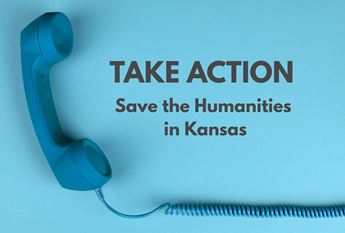How to Host a Shared Stories Event
Choose a Planner
A Shared Stories event coordinator chooses the script topic, downloads the materials from the website, recruits readers and a facilitator, secures the event location, knows how to set up and use the microphone or other equipment needed, publicizes the event, and makes sure scripts are available for audience members at the event. Planners can use the Event Planning Checklist to prepare for the event.
Choose a Topic
There are 18 topics to choose from and include Kansas land and environment and events before and after the Civil War. Visit the Shared Stories of the Civil War Topics and the Shared Stories of the Kansas Land Topics for a list of topics and descriptions.
Choose the Location, Date, and Time
Shared Stories events are ideal for use in public libraries, art centers, museums, senior centers, community theaters, or classrooms. The room should be large enough so that the six readers can be seated together facing the audience. There needs to be at least one microphone centrally located so readers can step forward to read their parts. Refer to the Room Set-Up Instructions for more information.
Choose Readers
The local coordinator will need to recruit six readers to read the scrip out loud at the event. Each reader will be assigned a role as Narrator, Reader 1, Reader 2, Reader 3, and so on. The selection should be done in advance and a copy of the script given to the readers for practice. A practice run-through with all of the readers is encouraged. Readers should be comfortable using a microphone and speaking in front of a group. You might think about people who serve as readers at their church, teach, or others who enjoy public speaking.
Choose a Facilitator
At the beginning of the event, the facilitator introduces the Shared Stories theme (this material is available with the reader's theater script). At the conclusion of the reading, the facilitator moderates questions and comments from participants. Individuals like local historians, high school history teachers, and museum directors could serve as facilitators.
At the Event
Each audience member should receive a copy of the script, which includes an introductory essay and Questions to Think About, as well as a copy of the Take Home Citations hand-out. The facilitator opens the program by introducing the theme. Readers read the script, which is then followed by a facilitator moderating questions and comments.



